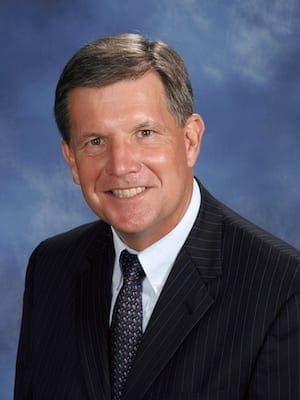Fire up the grill. Crank up the ice cream churn. Prepare for the fireworks show. Hum along to a little John Phillips Sousa. It’s the Fourth of July.
July 4th is a time to give thanks for our unrivaled freedom, and a great time to highlight and celebrate our religious liberty.
Religious liberty refers to the right to worship freely without fear of persecution. Yet religious liberty also protects citizens from compulsory religious participation.
In other words, our government is to neither compel nor dissuade our participation in worship.
Noting the catastrophes that had occurred historically when the government becomes the guardian of the church, our nation’s founders strategically planned their new government with a wall of separation between church and state.
When tempted to tear down that wall, we should not forget the words of Isaac Bachus, a noted Baptist minister who served during the era of the American revolution.
He asserted, “When Church and State are separate, the effects are happy, and they do not at all interfere with each other; but where they have been confounded together, no tongue nor pen can fully describe the mischiefs that have ensued.”
While many of us are celebrating our nation’s independence with picnics, barbecues and ball games, I hope we will also seize the opportunity to celebrate religious freedom by exercising our freedom to worship.
Because religious liberty is a core distinctive among Baptists and a core motive in our country’s founding, gathering with a faith community to participate in worship is a particularly appropriate way to celebrate.
Our Baptists ancestors were among the many who contended for religious liberty for all faiths.
The First Amendment to the Constitution of the United States confirms: “Congress shall make no law respecting an establishment of religion, or prohibiting the free exercise thereof; or abridging the freedom of speech, or of the press; or the right of the people peaceably to assemble, and to petition the Government for a redress of grievances.”
As citizens of these United States, we enjoy more comprehensive freedom than any other nation on earth, but let us never forget that with great freedom comes great responsibility.
In light of our religious liberty, let us pray fervently for those who live in regions of the world that are subject to harsh religious persecution.
As we freely choose where and when to worship, let us remember our brothers and sisters who will gather anxiously but faithfully in underground churches, taking risks unfamiliar to most of us, in order to worship God and gather with their fellow believers.
In my years of experience as a pastor, I have noted that joining regularly with other believers to worship nurtures spiritual growth, fosters moral character and encourages humanitarian service.
Hebrews 10:25 reminds us: “Some people have gotten out of the habit of meeting for worship, but we must not do that. We should keep on encouraging each other, especially since you know that the day of the Lord’s coming is getting closer.”
To neglect the opportunity to gather for worship and Bible study is to trivialize the tremendous price paid for our freedom to assemble without fear of reprisal or repercussion.
Perhaps the most detrimental symptom of historical amnesia is the tendency to take freedom for granted.
You and I can best celebrate and preserve our liberty by exercising the privileges that accompany our extraordinary freedom.
This month is a prime opportunity to celebrate by taking time to give thanks for our great heritage and to pray for our nation’s leaders.
Most important, celebrate religious liberty by exercising your freedom to worship. And respect the freedom of others to choose when, how or if they worship. For if one group among us loses their religious freedom, religious liberty will be in jeopardy for us all.
 Barry Howard serves as the lead pastor at the First Baptist Church in Pensacola, Florida, a leadership coach with the Center for Healthy Churches and a board member of the Baptist Center for Ethics. His writings can also be found on his blog, Barry’s Notes. You can follow him on Twitter @BarrysNotes.
Barry Howard serves as the lead pastor at the First Baptist Church in Pensacola, Florida, a leadership coach with the Center for Healthy Churches and a board member of the Baptist Center for Ethics. His writings can also be found on his blog, Barry’s Notes. You can follow him on Twitter @BarrysNotes.
Editor’s note: A series of articles appeared on EthicsDaily.com in 2013 offering resources for churches seeking to recognize the national holiday while maintaining a focus in worship on praising God and responding to God’s call on our lives.
Pastor at the Wieuca Road Baptist Church in Atlanta. He also serves as a leadership coach and columnist for the Center for Healthy Churches. He and his wife, Amanda, live in Brookhaven, Georgia.

